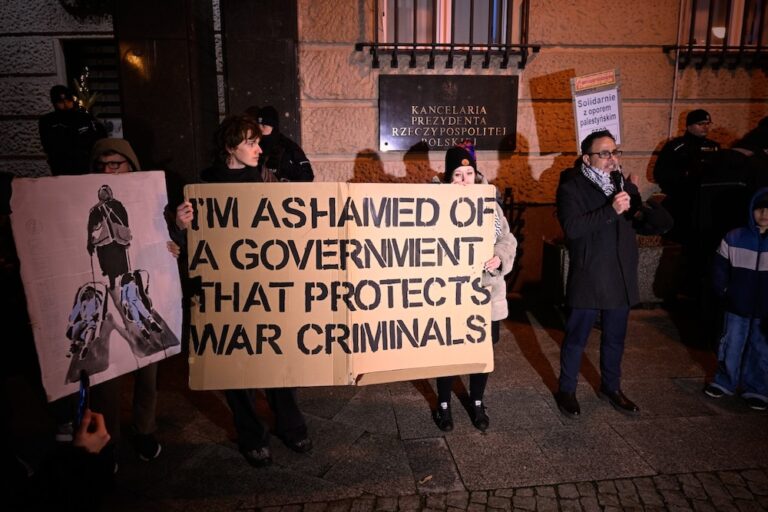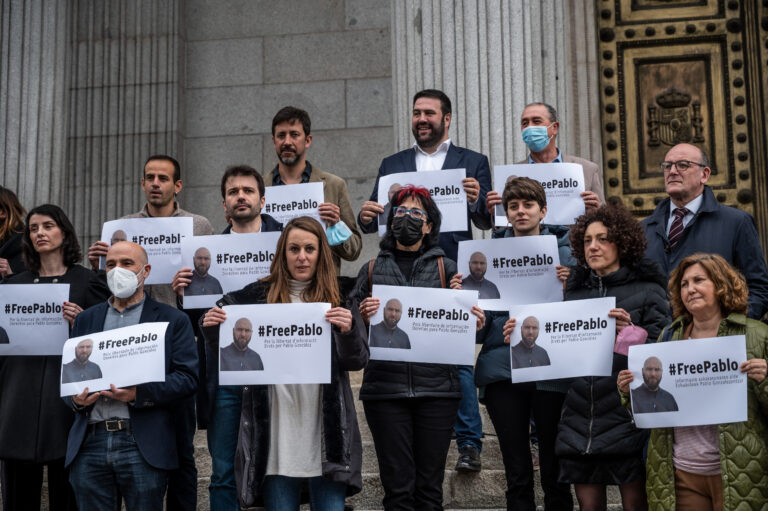“The overbroad application of defamation laws, as in these two cases, does not just affect those journalists directly involved, but can cast a chilling effect over colleagues who may fear similar consequences,” said IPI Press Freedom Adviser Scott Griffen.
This article was originally published on ipi.freemedia.at on 28 October 2014.
The International Press Institute (IPI) today welcomed two recent European Court of Human Rights (ECtHR) decisions upholding the media’s right to report on issues of public concern in the face of libel suits.
In the first ruling, Erla Hlynsdóttir v. Iceland [No.2], published on Oct. 21, the Court unanimously ruled that Iceland violated a journalist’s right to free expression when a court there ordered her to pay ISK 400,000 (€2,600) in damages and costs to a woman accused of helping her husband commit sexual abuse at a rehab shelter.
In the second ruling, Stankiewicz and Others v. Poland, from Oct. 14, the ECtHR provided a strong boost to the defence of reasonable publication, which allows journalists to publish allegations related to matters of public concern even when those allegations have not been conclusively proven.
In Hlynsdóttir, the journalist, Erla Hlynsdóttir, in 2007 published an article related to a then-ongoing police investigation in which she quoted one of the purported victims as questioning whether the woman was fit to continue her work as a primary school teacher given that she had previously “hunted” for her husband.
The woman sued Hlynsdóttir for libel, and the Icelandic Supreme Court agreed that the victim’s comment amounted to an unfounded assertion of fact. Although Hlynsdóttir had not herself made the statement in question, the victim claimed that Hlynsdóttir had not rendered her statement accurately and thus bore responsibility.
Complicating matters was the fact that the original recording of the interview had been lost. Curiously, however, the Supreme Court did determine that the remaining comments attributed to the victim aligned with what she had told police investigators and could thus be considered accurate.
By contrast, the ECtHR noted that the woman’s participation in the abuse was an “established fact” and that the victim’s comments therefore amounted to a protected “value based characterisation”. Furthermore, regarding the disputed accuracy of the comment, the ECtHR ruled emphatically that “the [Icelandic] Supreme Court did not base its judgment on relevant and sufficient grounds demonstrating convincingly that the applicant acted … inconsistently with the diligence expected of a responsible journalist reporting on a matter of public interest”.
Speaking to IPI, Gunnar Ingi Jóhannsson, the Icelandic attorney who represented Hlynsdóttir in Strasbourg, expressed satisfaction with the decision, which he said would “encourage journalists in Iceland to continue to impart information and ideas on matters of legitimate public concern, notwithstanding several recent unfavorable judgments by domestic courts in Iceland, regarding the freedom of the press and freedom of expression”.
The Stankiewicz case related to a 2003 investigative report published by two Polish journalists, Andrzej Stankiewicz and Małgorzata Solecka, suggesting that a Polish health ministry official had attempted to bribe a multinational pharmaceutical company. The principal source for the report had been the company’s chief executive; the journalists had also spoken to several other relevant persons involved in order to corroborate the story, including the company’s finance director and the implicated official, whose own account of the events appeared “inconsistent”.
The official filed a civil claim against Stankiewicz, Solecka and the publishing company, originally claiming zł 500,000 (€120,000) in damages, although this was later reduced to a demand for an apology only. Overturning a decision by the Warsaw Regional Court, the Warsaw Court of Appeal ruled that the journalists had not acted with “requisite diligence” in reporting the allegations.
Specifically, the Court of Appeal said, the journalists had failed to interview a further employee of the pharmaceutical company whose version of the relevant meetings differed from that of his colleagues. In addition to the apology, the defendants were ordered to pay legal costs and court fees of approximately €2,700.
The ECtHR reached a very different conclusion, unanimously holding that the journalists had “complied with the tenants of responsible journalism” and had sought to verify the story “meticulously”. Given the identities of the various sources interviewed, the Court found that the allegations “were underpinned by a sufficient factual basis” and that “the content and the tone of the article was [sic] on the whole fairly balanced”.
Moreover, the Court sharply criticised the Polish courts for failing to take into account basic tenets of free expression jurisprudence, including the press’ role as watchdog and the need for public officials to accept a wider degree of criticism.
“Both of these decisions provide crucial support to European journalists seeking to inform the European public on matters of public interest,” IPI Press Freedom Adviser Scott Griffen, who has been leading IPI’s work on defamation laws and press freedom, said. “The overbroad application of defamation laws, as in these two cases, does not just affect those journalists directly involved, but can cast a chilling effect over colleagues who may fear similar consequences.”
He continued: “It is particularly important that national courts recognise the right of journalists to report on unproven allegations as long as they follow principles of responsible journalism, as was clearly the case in the Polish investigation. This is especially so when the allegations involve serious misconduct by a public official in a democratic state. Indeed, without such a guarantee, journalists may be dissuaded from performing their watchdog role.”
Both Iceland and Poland have been condemned by the ECtHR in defamation cases in the past, and Hlynsdóttir currently has a second defamation case pending in Strasbourg. In that matter, she is contesting a judgment of liability over a headline and a sentence taken from an official indictment that were considered defamatory toward a convicted drug smuggler.
Moreover, while the two present cases involved civil penalties only, in both countries defamation also remains a criminal act punishable by imprisonment, as IPI ongoing research has revealed.


